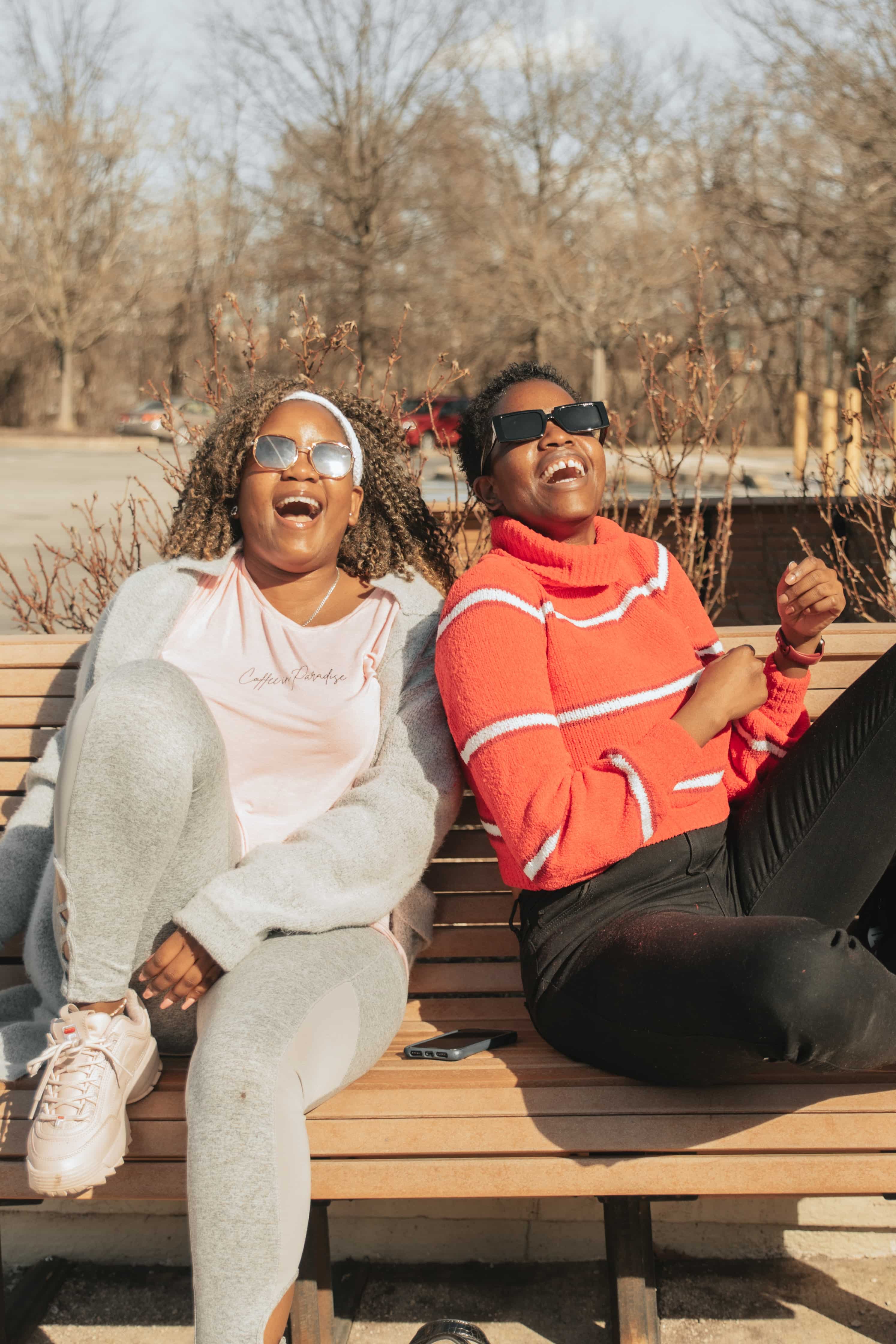Making friends as an adult is hard. People are busy with work and families, and maybe it seems like everyone already around you already has their friend group locked down. If that sounds like you, you’re not alone. As a psychologist, I talk to so many women who really want more (or better quality) friendships, and aren’t sure where to start.
A lot of the advice around making friends focuses on how to meet people: Volunteer! Take a class! Go to a meetup! These can all be good ways to meet people with similar interests. But there’s a big difference between meeting people you could be friends with, and actually being able to transition a one-off meeting or a casual acquaintance into a real friendship.
So how do we go about making friends then? Here are my top five tips for building satisfying friendships as an adult.
A Therapist’s Top Tips for Making Friends as an Adult
Actually tell people that you’re interested in making friends.
As an adult, there’s nothing to be gained by “playing it cool” with potential friends. Unfortunately, friendships don’t fall into our laps the way they might have when we were in school. That means we need to communicate our interest to others.
This might sound easier said than done, and it can feel vulnerable. But if you’re worried about sounding thirsty or desperate, you can let that go. Good communication skills are an asset at any stage of friendship.
Try language like, “I moved here during the pandemic and I haven’t really found my group yet, and I’m interested in meeting some new friends. Would you want to get lunch sometime?” Or “I would love to make some friends who enjoy [wine tasting/cosplay/classical music] too, I don’t have anyone to go to [Napa/ComiCon/the symphony] with right now.” You can also try asking for an invite to a group event: “Is your book club open to new members? It sounds fun and I’d love to meet some new people.”

Keep things low-stakes to start.
Just like dating, making new friends usually means experiencing some false starts. Sadly, you’re likely to experience some rejection on your search for the right match(es). Keeping things low-key at the beginning can help you manage your energy and expectations. The goal is to creating real opportunities to start building connection, without going overboard with big plans or gestures from the outset.
Going for coffee, attending a show or a talk together, or grabbing drinks after work are all low-stakes opportunities to enjoy each other’s company and see if you’re compatible. And if the friendship doesn’t go further, you haven’t invested so much energy that it creates resentment or burnout. On the other hand, going all-in on an attempt to impress or win over a brand new friend can be overwhelming on their end. And it can leave us feeling especially rejected if they don’t follow through or reciprocate.
Examine the stories that are getting in the way.
We all make up stories about ourselves and the people around us. While some might be helpful, others can get in the way of the connections we want to have with other people.
Common stories that I hear from clients are, “Everyone already has their friend group and I’m the only one left behind.” “There’s must be something wrong with me if I am finding it hard to make friends.” Or “I’m the only one who is willing to go the extra mile for my friends.” Stories like these are at best a fun-house mirror version of the truth. And they can be demoralizing, lead us to isolate further, or set us up for friendships that feel one-sided. (Pro-tip: A therapist can be very helpful with getting to the bottom of this!) The stories we have around rejection can be especially difficult to navigate when we’re working on making friends.
Consider the different types of friendships that can meet different needs.

When you imagine your ideal friendship, do you have one very specific picture of what that should look like? Or can you imagine a variety of ways to get those needs met? I talk with many people who are seeking an idealized version of friendship that they see on television, or might be looking to recreate something they had during a past period of their own life.
But being open to the different ways that our friendships might look can create a lot more opportunities for connection. If you’re set on having one best friend who you can do everything with, consider that multiple people might be able to meet those needs better. The person you can cry in front of doesn’t have to be the same person who shares your love for pickle ball, and that’s ok.
Try a therapy process group.
If difficulty with making or keeping friends has been a theme throughout your life, a therapy process group can be very helpful! It’s one of the best ways to get support around the barriers that are getting in the way. Think of it as a safe space to get clear, nonjudgmental feedback about how you’re relating to other people. This is actually a rarity in most social settings!

Process groups are also an opportunity to try on different ways of being that you can then take out into the real world. For example, perhaps you find yourself feeling resentful and taken advantage of in your relationships. A process group can be a place to practice asking for your needs to be met, or setting boundaries with other people. For folks in California, Stella Nova periodically runs groups like this.
Friendships are for everyone of every age
We all deserve friendships that nourish us, regardless of our age, ability, gender, marital or parental status. But making friends isn’t usually something that just happens – like all relationships, friendships take skill and effort to build and maintain. Do you have questions about making friends as an adult? Or about other relationship or mental health topics? Email me to suggest a topic for a future blog post.
About The Author
Maya Borgueta, PsyD, is a California licensed clinical psychologist who supports Millennial professional women to build happier, healthier relationships with friends, family, partners, and themselves. She is the founder of San Francisco-based clinic Stella Nova Psychology, which offers online therapy for women and nonbinary professionals as well as couples of all genders.
Online Therapy in California
If you’re looking to improve your relationships with friends, family, or partner, therapy can help. Stella Nova offers online therapy for women and nonbinary professionals througout California. We also offers couples therapy for all genders. Our LGBTQ+ and BIPOC affirming practice would love to support you to reach your goals.
Our therapists have specialties in a variety of concerns, including anxiety, depression, perinatal mental health, professional burnout and more. Get matched with the best online therapist for your unique goals and preferences today! Schedule a free, 20-minute consultation to learn more.


